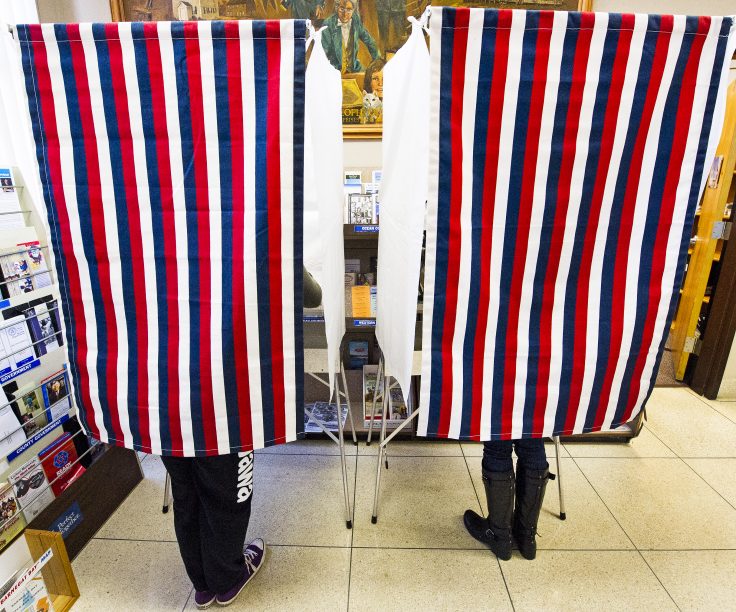The Supreme Court on Thursday refused to block a Florida law that requires ex-felons to pay off fines and court-ordered restitution before their voting rights are restored, a decision that will keep thousands away from the polls in the perennial battleground state.
Thursday's move leaves in place an appeals court order that effectively barred hundreds of thousands of ex-convicts from registering to vote. Those would-be voters are disqualified from the state's August primary as a result of the ruling, and their participation in November's presidential election is now unlikely. There are approximately 750,000 ex-felons in Florida.
The ruling comes amid a nationwide push to relax criminal sanctions and rehabilitate ex-felons for ordinary life. The effort has resulted in new federal legislation like the First Step Act—a bipartisan sentencing reform bill—as well as state-level changes to convict voting restrictions. In recent years, for example, New York and Colorado have extended voting rights to inmates on parole.
Presumptive Democratic presidential nominee Joe Biden leads President Donald Trump in Sunshine State surveys by almost seven points, according to polling aggregator FiveThirtyEight. Winning the state is essential to the president's reelection prospects, and ex-con voting skews heavily in favor of Democrats.
The Court did not give reasons for its decision or disclose a vote count, as is typical of such orders. Justice Sonia Sotomayor handed down a dissenting opinion, joined by Justices Ruth Bader Ginsburg and Elena Kagan.
"This Court's inaction continues a trend of condoning disfranchisement," Sotomayor wrote.
In 2018, Floridians enacted a state constitutional amendment that restores voting rights to felons once their sentences are complete. The proposal passed with about 65 percent of the vote. Murderers and sex offenders are still disenfranchised under the amendment. The state legislature then passed a law clarifying that ex-convicts must pay all fines, fees, and court-ordered restitution to victims before they could return to the voting booth. The Florida Supreme Court agreed that the amendment encompasses "all terms of sentence" including financial penalties.
A coalition of former felons challenged what they called a "pay-to-vote" law in court, arguing that it amounts to wealth discrimination and an unconstitutional poll tax. They also objected that the state has no system in place for tracking and assessing just how much ex-cons owe in terms of fines or restitution.
A trial court sided with the plaintiffs on May 26, and almost 100,000 former felons registered to vote in the following days. But the 11th U.S. Circuit Court of Appeals put the decision on hold, prompting an emergency appeal to the Supreme Court.
"This case involves three-quarters of a million people who are otherwise eligible to vote but for the state's system of wealth discrimination, imposition of an unconstitutional poll tax, and the incapable administration of a system that deprives people of notice of their eligibility," lawyers from the ACLU and the Campaign Legal Center wrote in court filings on behalf of the plaintiffs.
Florida countered that the states have no duty to restore voting rights to ex-convicts in the first place and emphasized that courts generally do not upend election rules on short notice, given possible voter confusion and administrative burdens on election workers.
The trial court's order, issued less than two months before the registration deadline for primary voting, "would have thrown Florida's primary into chaos," lawyers for the state wrote.
The case will now return to the 11th Circuit for further proceedings. Oral arguments before that panel are scheduled for Aug. 18, the day of Florida's primary election for congressional, state, and local races. If a decision does not come before Oct. 5, the registration deadline for the general election, then hundreds of thousands of prospective voters will be disqualified from the November balloting.
The case is No. 19A1071 Raysor v. DeSantis.
Raysor v. DeSantis Supreme ... by Washington Free Beacon on Scribd
